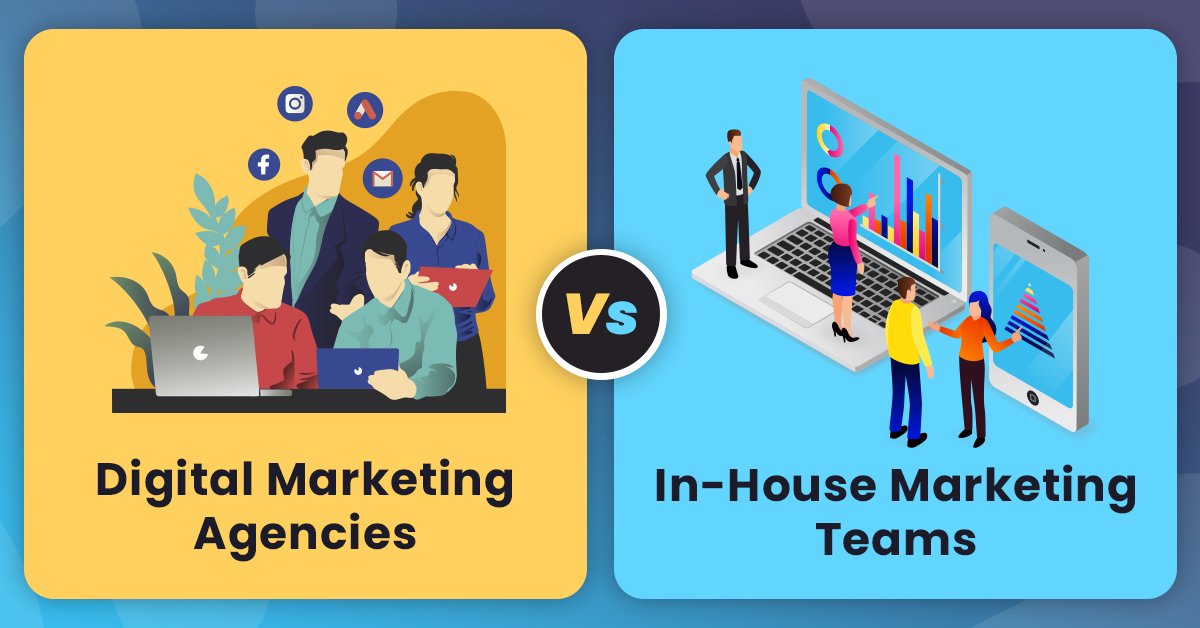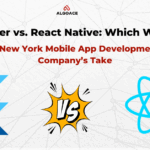
In the current competitive digital environment, selecting the appropriate strategy for email marketing is crucial for the success of your campaign. Regardless of whether your business focuses on software development services or operates in another sector, an effective email marketing strategy can enhance engagement, strengthen brand loyalty, and increase conversions. The choice typically comes down to engaging an Email Marketing Agency or developing an internal team. This guide will outline the pros and cons of each alternative, assisting you in identifying the most suitable option for your business requirements.
Why Email Marketing Matters for Businesses
Email marketing stands out as one of the most powerful methods for directly connecting with and engaging customers. It provides businesses with the ability to:
- Effectively nurture leads
- Engage in direct communication with customers
- Enhance conversions and sales Foster enduring customer relationships
However, to fully harness the benefits of email marketing, a carefully crafted strategy is crucial. This is where the decision between utilizing an Email Marketing Agency and relying on an in-house team becomes pivotal.
Understanding the Role of an Email Marketing Agency
An Email Marketing Agency is a specialized external team that focuses on the creation, implementation, and enhancement of email marketing campaigns for various businesses. These agencies provide a comprehensive suite of services to oversee campaigns, including content development, audience segmentation, and performance tracking. Collaborating with an agency presents numerous advantages, especially for companies operating in software development or other highly competitive industries.
Benefits of Hiring an Email Marketing Agency
Engaging the services of an Email Marketing Agency provides businesses with access to specialized expertise, sophisticated tools, and data-informed strategies that yield significant results. These agencies, with their in-depth knowledge, can enhance campaigns to improve engagement, deliverability, and return on investment, positioning them as a prudent option for companies aiming to amplify the effectiveness of their email marketing efforts.
1. Access to Industry Experts
An Email Marketing Agency provides access to a team of experts who possess specialized knowledge in the field of email marketing. These agencies typically engage professionals skilled in areas such as copywriting, design, automation, analytics, and strategic planning. Their comprehensive understanding of current trends and industry best practices equips them with extensive experience that may be challenging to develop internally.
2. Scalability and Flexibility
Collaborating with an Email Marketing Agency facilitates scalability, which is particularly advantageous for businesses aiming for rapid growth. These agencies can modify their resources in accordance with the demands of specific campaigns, offering a level of flexibility that is challenging to attain with an internal team.
3. Advanced Tools and Technologies
Email marketing agencies typically possess access to sophisticated tools and technologies that facilitate the execution and optimization of campaigns. These resources, which include CRM integrations and robust analytics, significantly improve the accuracy and effectiveness of marketing efforts. For companies engaged in software development services, leveraging these advanced tools can result in increased customer retention and higher conversion rates.
4. Cost-Effectiveness
Engaging an agency may seem expensive at first glance; however, when evaluating the overall expenses associated with recruiting, training, and overseeing an internal team, it can prove to be more economical over time. Agencies typically offer comprehensive services, allowing businesses to select from a range of packages tailored to their specific requirements and financial considerations.
Downsides of Hiring an Email Marketing Agency
Although engaging an Email Marketing Agency presents various benefits, it also entails certain disadvantages. Organizations might face reduced direct oversight of their campaigns and possible delays in communication, which could affect their responsiveness and the consistency of their brand.
1. Less Direct Control
Collaborating with an Email Marketing Agency implies that specific elements of the campaign may be overseen by external parties. This arrangement can lead to a reduction in direct oversight regarding daily operations and scheduling, potentially posing challenges for organizations that favor a more involved approach.
2. Potential Communication Delays
Agencies, being external partners, may necessitate additional time for obtaining approvals, making revisions, or seeking clarifications during coordination. Conversely, in-house teams benefit from more efficient internal communication, enabling them to respond more swiftly.
Understanding the Role of an In-House Email Marketing Team
Establishing an internal email marketing team requires the recruitment of personnel who will be directly accountable for the development and implementation of email campaigns within the organization. This approach can be especially advantageous for companies that have sustained, long-term email marketing requirements, such as those operating in the software development sector.
Benefits of an In-House Email Marketing Team
An internal email marketing team provides organizations with comprehensive oversight of their campaigns, facilitating prompt modifications and a stronger alignment with brand messaging. As team members are deeply integrated into the company culture, in-house teams are capable of producing more genuine and unified communications with customers.
1. Full Control Over Campaigns
An internal team enables organizations to maintain full oversight of their campaign strategy, design, and implementation. For businesses aiming to frequently test new ideas or adhere to stringent branding standards, an internal team offers the agility necessary for rapid adjustments.
2. Enhanced Brand Knowledge
Employees within the organization possess a deeper familiarity with the brand’s culture, values, and objectives. This inherent comprehension can lead to more genuine messaging in email campaigns, ensuring a closer alignment with the company’s voice and objectives.
3. Improved Communication and Collaboration
In-house teams experience improved internal communication, facilitating collaboration with other departments such as sales and product development, which leads to more unified strategies. The ability to access resources promptly and make swift decisions can significantly increase the efficiency of campaigns.
4. Consistent Availability
An internal team is consistently accessible for immediate modifications or last-minute alterations. This adaptability can be beneficial in addressing unforeseen circumstances or seizing opportunities.
Downsides of an In-House Email Marketing Team
Establishing an internal email marketing team provides advantages in terms of control and brand consistency; however, it also presents specific challenges. These challenges encompass increased operational expenses and restricted access to specialized expertise, which may impede flexibility and sustainable growth.
1. Higher Overhead Costs
Establishing an internal team can incur significant expenses. The cumulative costs of salaries, training, benefits, and software subscriptions frequently lead to greater long-term financial commitments than those associated with engaging an Email Marketing Agency. This situation poses particular difficulties for smaller enterprises or startups that operate with constrained budgets.
2. Limited Skill Sets
An internal team may demonstrate proficiency in specific domains; however, they might not possess the necessary expertise in other specialized facets of email marketing, including advanced analytics, automation, or segmentation. A limited range of skills could hinder the team’s ability to adapt to the continuously changing trends and technologies in the field.
3. Slower Adaptability to Industry Trends
Keeping abreast of the most recent trends in email marketing necessitates the allocation of dedicated resources. While agencies are consistently adjusting to shifts within the industry, in-house teams may struggle to maintain pace due to constraints in resources or capacity.
Comparing Costs: Email Marketing Agency vs. In-House Team
Cost plays a crucial role in the decision-making process when choosing between an Email Marketing Agency and an in-house team. It is important to analyze the various cost factors related to each option.
Cost Factors for an Email Marketing Agency
- Monthly or Retainer Fees: Agencies typically impose a monthly charge, which may be either a fixed amount or contingent upon the extent of the work involved. Numerous agencies provide customized packages that align with the size and specific needs of the business.
- Project-Based Pricing: Certain agencies adopt a pricing model based on distinct projects or campaigns, allowing for adaptability for businesses that have sporadic requirements.
Cost Factors for an In-House Team
- Compensation and Perks: Attracting and maintaining skilled personnel necessitates offering competitive compensation packages, which may lead to rising expenses over time.
- Professional Growth and Education: Ongoing training is essential for ensuring that the team remains current, contributing to overall costs.
- Technology and Resources: Allocating funds for email marketing platforms, customer relationship management systems and analytical tools entails ongoing financial commitments.
Which Is Right for Your Business: Agency or In-House Team?
The choice between engaging an Email Marketing Agency and developing an in-house team primarily hinges on factors such as the size of your organization, available budget, and overarching objectives. Consider the following scenarios to assist in making your decision.
When an Email Marketing Agency May Be Best
An Email Marketing Agency is frequently a more advantageous option for:
- Startups and Small Enterprises: Agencies offer a wide range of services, eliminating the necessity to recruit numerous employees.
- Organizations with Restricted Budgets: Agencies can prove to be more economical, allowing you to pay solely for the services required without the obligation of hiring full-time personnel.
- Companies Requiring Specialized Expertise: Should your campaign demand specific skills in areas such as segmentation, automation, or advanced analytics, an agency will possess the requisite talent.
When an In-House Team May Be Best
An internal team may be particularly suitable for:
- Large Corporations: Organizations with substantial marketing budgets and intricate, ongoing campaigns can gain from the oversight and accessibility that an internal team offers.
- Brands Needing Frequent Modifications: Companies that require regular updates to their email communications or necessitate close cooperation with other departments may discover that an internal team is more agile and responsive.
- Entities Committed to Long-Term Planning: For businesses where email marketing is integral to their long-term development strategy, establishing an internal team can represent a worthwhile investment.
Conclusion
Determining whether to engage an Email Marketing Agency or to develop an in-house team necessitates a careful assessment of your organization’s requirements, financial resources, and strategic objectives. For some businesses, the specialized knowledge and adaptability offered by an agency may present a more efficient and economical option. Conversely, others may prefer the enhanced control and deeper brand insight that an in-house team can provide.
In numerous instances, particularly within industries such as software development services, a blended approach proves effective in utilizing an agency for targeted campaigns while retaining a small in-house team for routine operations. Regardless of the choice made, a thoughtfully implemented email marketing strategy can profoundly influence brand development, foster customer loyalty, and enhance overall business performance.





0 Comments